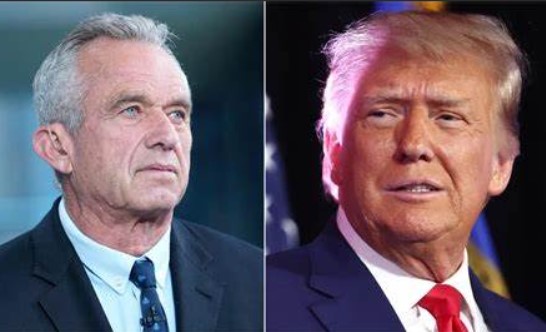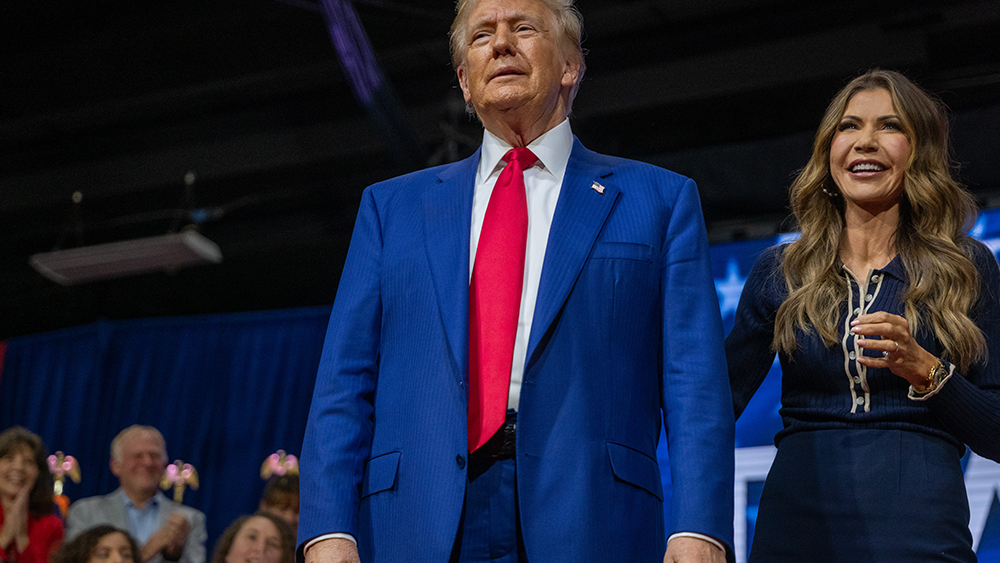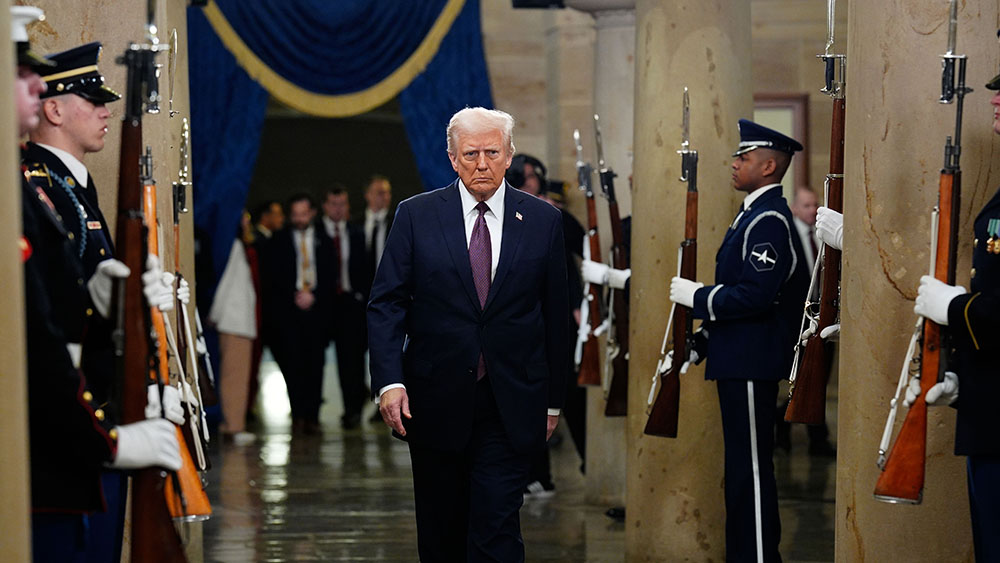 Parler
Parler Gab
Gab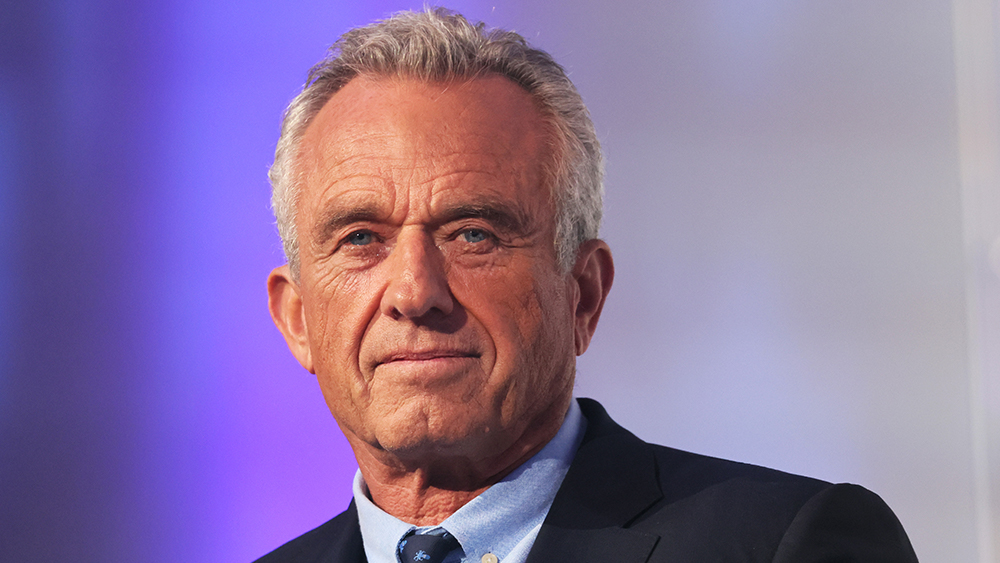
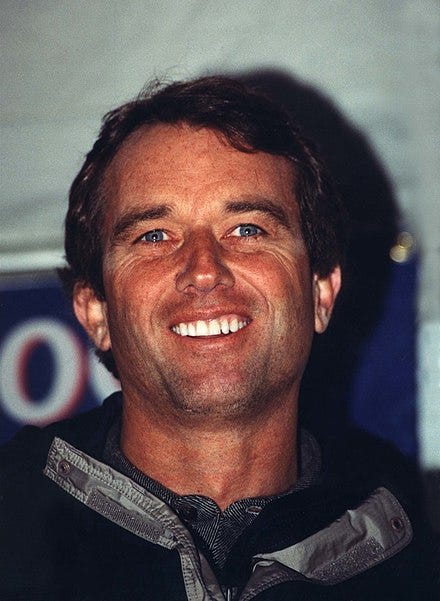 Rachel Carson and a Life Influenced by Nature
Bobby, not yet ten, felt proud that his uncle, President Kennedy, as well as his parents read Rachel Carson’s Silent Spring, which exposed the dangers of widespread pesticide use. “They invited Rachel Carson to dinner at my house at Hickory Hill, and it was one of the great thrills of my life to meet her,” reflects Bobby as reported by Russell in his book. “And my uncle went to bat for her. He went to war with his own Department of Agriculture (USDA) . . . . the USDA is and has been for fifty years a captive of agribusiness and the chemical industry.”
Continued Bobby: “My uncle asked his chief scientist, Jerome Wiesner, to assemble a group of the best in the country, toxicologists, environmentalists, to read Silent Spring. Rachel Carson had been meticulously careful when she wrote it. She had three references for every fact in the book, because she knew she was going to be attacked. So when this panel of scientists went through the book, fact by fact, sentence by sentence, assertion by assertion, they came back with a report that vindicated Rachel Carson in the last months of her life. She died in April 1964, six months after my uncle Jack.”
The smear campaign orchestrated against Carson’s groundbreaking book, as Russell reflects, “laid the strategic groundwork for later battles by tobacco and carbon industries.” Carson’s meticulously fact-checked work was labelled a collection of lies, while the chemical industry and its allies called for more studies. Yet the independent commission formed by President Kennedy issued a highly critical report that raised concerns about conflicts-of-interest within JFK’s USDA. Bobby remembers the seminar hosting Carson at their home in 1962 as “one of the treasured moments of my youth.”
An environment for the working man and woman
“There is no stronger advocate for free market capitalism than myself,” Bobby has said, “because I believe it’s the most efficient and democratic way to distribute the goods of the land. While free markets tend to democratize a society, unfettered capitalism leads invariably to corporate control of government.”
Bobby has long been dedicated to combating agency capture at the Environmental Protection Agency, Centers for Disease Control, Food and Drug Administration, and other government agencies.
In Bobby’s view, “The best solution to the climate crisis is democratizing the energy grid, ending the obscene subsidies to Big Carbon, and rationalizing markets to turn every American into an energy entrepreneur and every home into a power plant. But Bill Gates and the Deep State are advocating top down, capital intensive geo-engineering solutions that expand authoritarian controls.”
Justice for forgotten Americans
In the Appalachians of West Virginia, Bobby, working as an environmental lawyer, forced the DuPont corporation to pay out $196 million in punitive damages, among the highest compensatory verdicts in the state’s history. He had worked for thirty years to bring General Electric and the Monsanto chemical company to justice for dumping PCBs into the Hudson River, putting some 2,800 fishing families out of business. And in what might be called his “legacy project,” Bobby continued to fight Monsanto. In 2018, he joined a legal team involved in class action suits over cancer-causing glyphosate in Monsanto’s Roundup weed killer, which the company had claimed was “as safe as aspirin” for gardeners to spray. The National Trial Lawyers Association designated the team their “Trial Team of the Year” – after a jury awarded groundskeeper DeWayne “Lee” Johnson an unprecedented $289.2 million in damages. Monsanto’s new owner, Bayer, later announced it would stop selling glyphosate-based weed killers in the U.S. residential market.
A friend to indigenous tribes
In 2000, Bobby had an epiphanic experience in Arctic Village, the most northern native community in North America. He had traveled there to support their battle against prospective oil drilling amid the caribou herds in the Arctic National Wildlife Refuge. “I spoke to the whole village gathered in a communal wooden cabin following the drum ceremony,” Bobby recalled. . “Afterward one of the elders came up to me. He said, ‘your uncle came here in April 1969. He’d flown in somewhere on a float plane and then taken a dogsled to our town. It was night, 24 hour darkness, and we didn’t know he was coming.”
For Bobby, of course, there had been the dramatic river adventures that punctuated his infatuation with Latin America. As his Hudson Riverkeeper partner John Cronin put it: “When he first started working, he had natural interest in environmental issues and a competing interest in political issues of Latin America.” Beginning simultaneously in 1985, Bobby had helped develop the Natural Resources Defense Council’s (NRDC) international program for environment, energy, and human rights. He later traveled to Canada and Latin America to assist indigenous tribes in safeguarding their homelands and opposing large-scale energy and extractive projects in remote wilderness areas.
The magnetic pull of politics
While his older sister Kathleen was elected lieutenant governor of Maryland in 1994, and his older brother Joe was serving his fifth term as a U.S. Representative from Massachusetts, a 1995 New York Magazine cover story declared Bobby “The Kennedy Who Matters.”
Water remained the locus of his professional life, but the issue now assumed dimensions on his home turf that propelled him into politics. It required every ounce of the negotiating skills and personal approach that he’d recently learned (and lost) in Ecuador, and prepped for (and won) in Northern Quebec. He'd no longer cross tribal lines, but rather party lines. He was not simply a Riverkeeper, but a defender of water quality for the entire state of New York. And his adept maneuvering at the highest levels of New York politics thrust him into the limelight and later inspired him to seek political offices.
Riverkeeper: A lifelong dream, a consummate passion
As Kennedy began to take on the biggest polluters in court, in 1987 he founded the Environmental Litigation Clinic at Pace University School of Law in lower Manhattan. He’d teach law there for three decades.
Under faculty supervision, Kennedy’s students analyzed permit and discharge records and found that 30 percent of the reservoir’s sewage plants violated their permits, and lawsuits against each were initiated. A report, The Legend of City Water, was compiled and distributed widely to government officials.
Bobby wrote op-eds, met with editorial boards, and took film crews on pollution tours of the watershed. He lobbied EPA administrator William Reilly to extend a temporary filtration waiver and, on his last day in office, Reilly gave the city a year to develop a program to protect its reservoirs.
At Riverkeeper and Pace, Kennedy continued to raise the red flag about water quality in the Hudson and beyond. He helped oversee a campaign in which a PR firm presented City Council members and county government officials with coffee mugs. The mugs were inscribed with the words, “2% of every cup of Croton water is human sewage.”
Read more at: TheKennedyBeacon.Substack.com
Rachel Carson and a Life Influenced by Nature
Bobby, not yet ten, felt proud that his uncle, President Kennedy, as well as his parents read Rachel Carson’s Silent Spring, which exposed the dangers of widespread pesticide use. “They invited Rachel Carson to dinner at my house at Hickory Hill, and it was one of the great thrills of my life to meet her,” reflects Bobby as reported by Russell in his book. “And my uncle went to bat for her. He went to war with his own Department of Agriculture (USDA) . . . . the USDA is and has been for fifty years a captive of agribusiness and the chemical industry.”
Continued Bobby: “My uncle asked his chief scientist, Jerome Wiesner, to assemble a group of the best in the country, toxicologists, environmentalists, to read Silent Spring. Rachel Carson had been meticulously careful when she wrote it. She had three references for every fact in the book, because she knew she was going to be attacked. So when this panel of scientists went through the book, fact by fact, sentence by sentence, assertion by assertion, they came back with a report that vindicated Rachel Carson in the last months of her life. She died in April 1964, six months after my uncle Jack.”
The smear campaign orchestrated against Carson’s groundbreaking book, as Russell reflects, “laid the strategic groundwork for later battles by tobacco and carbon industries.” Carson’s meticulously fact-checked work was labelled a collection of lies, while the chemical industry and its allies called for more studies. Yet the independent commission formed by President Kennedy issued a highly critical report that raised concerns about conflicts-of-interest within JFK’s USDA. Bobby remembers the seminar hosting Carson at their home in 1962 as “one of the treasured moments of my youth.”
An environment for the working man and woman
“There is no stronger advocate for free market capitalism than myself,” Bobby has said, “because I believe it’s the most efficient and democratic way to distribute the goods of the land. While free markets tend to democratize a society, unfettered capitalism leads invariably to corporate control of government.”
Bobby has long been dedicated to combating agency capture at the Environmental Protection Agency, Centers for Disease Control, Food and Drug Administration, and other government agencies.
In Bobby’s view, “The best solution to the climate crisis is democratizing the energy grid, ending the obscene subsidies to Big Carbon, and rationalizing markets to turn every American into an energy entrepreneur and every home into a power plant. But Bill Gates and the Deep State are advocating top down, capital intensive geo-engineering solutions that expand authoritarian controls.”
Justice for forgotten Americans
In the Appalachians of West Virginia, Bobby, working as an environmental lawyer, forced the DuPont corporation to pay out $196 million in punitive damages, among the highest compensatory verdicts in the state’s history. He had worked for thirty years to bring General Electric and the Monsanto chemical company to justice for dumping PCBs into the Hudson River, putting some 2,800 fishing families out of business. And in what might be called his “legacy project,” Bobby continued to fight Monsanto. In 2018, he joined a legal team involved in class action suits over cancer-causing glyphosate in Monsanto’s Roundup weed killer, which the company had claimed was “as safe as aspirin” for gardeners to spray. The National Trial Lawyers Association designated the team their “Trial Team of the Year” – after a jury awarded groundskeeper DeWayne “Lee” Johnson an unprecedented $289.2 million in damages. Monsanto’s new owner, Bayer, later announced it would stop selling glyphosate-based weed killers in the U.S. residential market.
A friend to indigenous tribes
In 2000, Bobby had an epiphanic experience in Arctic Village, the most northern native community in North America. He had traveled there to support their battle against prospective oil drilling amid the caribou herds in the Arctic National Wildlife Refuge. “I spoke to the whole village gathered in a communal wooden cabin following the drum ceremony,” Bobby recalled. . “Afterward one of the elders came up to me. He said, ‘your uncle came here in April 1969. He’d flown in somewhere on a float plane and then taken a dogsled to our town. It was night, 24 hour darkness, and we didn’t know he was coming.”
For Bobby, of course, there had been the dramatic river adventures that punctuated his infatuation with Latin America. As his Hudson Riverkeeper partner John Cronin put it: “When he first started working, he had natural interest in environmental issues and a competing interest in political issues of Latin America.” Beginning simultaneously in 1985, Bobby had helped develop the Natural Resources Defense Council’s (NRDC) international program for environment, energy, and human rights. He later traveled to Canada and Latin America to assist indigenous tribes in safeguarding their homelands and opposing large-scale energy and extractive projects in remote wilderness areas.
The magnetic pull of politics
While his older sister Kathleen was elected lieutenant governor of Maryland in 1994, and his older brother Joe was serving his fifth term as a U.S. Representative from Massachusetts, a 1995 New York Magazine cover story declared Bobby “The Kennedy Who Matters.”
Water remained the locus of his professional life, but the issue now assumed dimensions on his home turf that propelled him into politics. It required every ounce of the negotiating skills and personal approach that he’d recently learned (and lost) in Ecuador, and prepped for (and won) in Northern Quebec. He'd no longer cross tribal lines, but rather party lines. He was not simply a Riverkeeper, but a defender of water quality for the entire state of New York. And his adept maneuvering at the highest levels of New York politics thrust him into the limelight and later inspired him to seek political offices.
Riverkeeper: A lifelong dream, a consummate passion
As Kennedy began to take on the biggest polluters in court, in 1987 he founded the Environmental Litigation Clinic at Pace University School of Law in lower Manhattan. He’d teach law there for three decades.
Under faculty supervision, Kennedy’s students analyzed permit and discharge records and found that 30 percent of the reservoir’s sewage plants violated their permits, and lawsuits against each were initiated. A report, The Legend of City Water, was compiled and distributed widely to government officials.
Bobby wrote op-eds, met with editorial boards, and took film crews on pollution tours of the watershed. He lobbied EPA administrator William Reilly to extend a temporary filtration waiver and, on his last day in office, Reilly gave the city a year to develop a program to protect its reservoirs.
At Riverkeeper and Pace, Kennedy continued to raise the red flag about water quality in the Hudson and beyond. He helped oversee a campaign in which a PR firm presented City Council members and county government officials with coffee mugs. The mugs were inscribed with the words, “2% of every cup of Croton water is human sewage.”
Read more at: TheKennedyBeacon.Substack.com
SURVEY: Gen Z struggles with basic DIY tasks
By Laura Harris // Share
Nine natural substances for type 2 diabetes
By News Editors // Share
Trump and Milei ignite PRO-FREEDOM REVOLUTION at this year’s World Economic Forum
By Ramon Tomey // Share
RFK Jr.’s push to BAN direct-to-consumer pharma ads sparks industry anxiety and legal debate
By Kevin Hughes // Share
The big freeze at HHS, CDC, and NIH
By Finn Heartley // Share
Trump takes on Bank of America: Holding corporate giants accountable for conservative exclusion
By Willow Tohi // Share
Governments continue to obscure COVID-19 vaccine data amid rising concerns over excess deaths
By patricklewis // Share
Tech giant Microsoft backs EXTINCTION with its support of carbon capture programs
By ramontomeydw // Share
Germany to resume arms exports to Israel despite repeated ceasefire violations
By isabelle // Share



